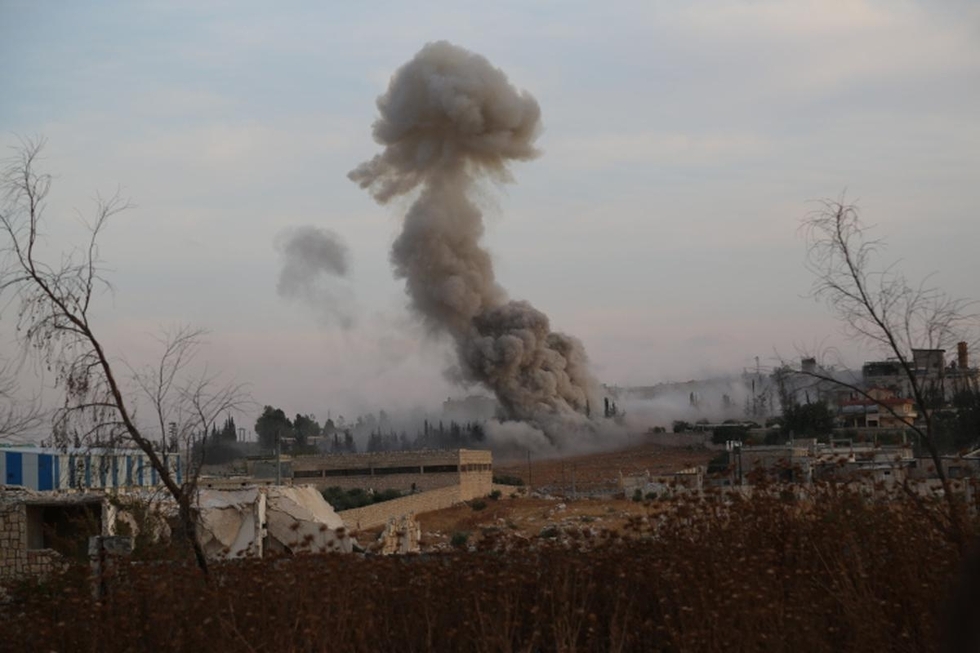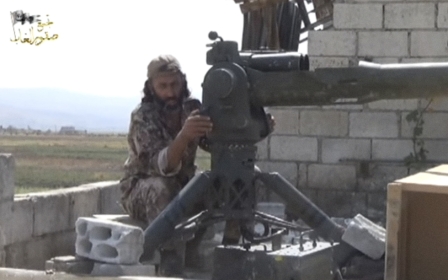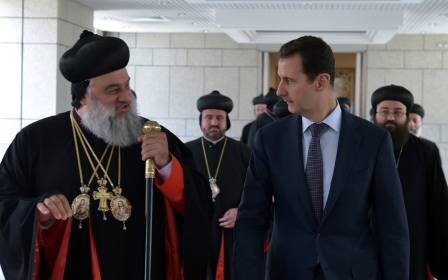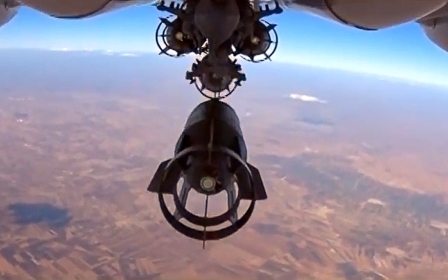Putin's Syrian bombing 'will spark jihad against Moscow': Qatar source

Russia is creating “a Frankenstein's monster" in its bombing campaign in Syria which will create a "jihad" against Moscow, a senior Qatari source said yesterday.
Already, the source noted, 52 Muslim scholars in Saudi Arabia had announced a "jihad," the effect of which would be to turn a revolution against Bashar al-Assad’s dictatorship into a Syrian “war of liberation” against Russia, Iran and Hezbollah.
The Qatari source said that after meeting Sergei Lavrov at the UN in New York, he had the impression that the Russian foreign minister was not “100 percent” happy with what his president Vladimir Putin had done.
“We are anticipating a Grozny-style approach,” he said referring to the two bloody wars Russia fought against separatists in Chechnya in the Northern Caucasus. "When Russia wants to embark on a struggle, they always show their power and this is what worries us.”
“We told him (Lavrov). Your attack was not against ISIS," he said, referring to the Islamic State group (IS). "You can join this alliance and we can all attack ISIS. But you attacked Idlib where there was no Daesh (IS), in Aleppo you attacked the moderates, in Homs you did the same thing.”
Qatar feels that the Russian strategy was to keep Assad in power but as to why they put troops on the ground at this stage in the war, the senior source suggested Moscow had acted out of “jealousy” of Iran, emboldened by its nuclear deal with the P5 plus 1 countries.
“If Russia shared the same goals as Iran, they would not have needed to put their own troops on the ground in Syria. They would have simply provided the air cover for Iranian troops and Hezbollah. But Russia insisted on going in on the ground, and that is what convinces us there is rivalry there.”
Pressed about whether Qatar would supply surface-to-air missiles to the rebel Syrian forces it supports, the source said he did not have access to the sophisticated systems needed to protect ground forces from Russian jets. Only the US could do that.
“The US has to take the driving seat," he said.
Qatar thinks the US-led alliance does not have a proper strategy and that attempts by the US to train a force loyal to it ended in fiasco, when the newly trained recruits handed their weapons over to Nusra Front, the group affiliated to al-Qaeda, “They were training the wrong people. We told them we can take care of Daesh. You take care of Bashar."
However, he claimed that the US had started covert talks with Jaish al-Fatah, the Army of Conquest, which is an umbrella group for Ahrar al-Sham, the Free People of the Levant and other forces.
The diplomatic melee caused by the start of the Russian campaign is set to continue in the UN Security Council, where the Russians tabled a motion on Wednesday that would give it free rein to hit any target in Syria. The French are due to table a counter motion.
Get in, get out
“What matters is how far Russia gets involved. If Russia strikes and leaves, fine. But if Russia engages and gets losses, then the snowball will develop. The worst thing that could happen is for the West to compromise with Russia, by accepting a political process where Bashar Assad should stay. Because they would be deleting the lives of the 300,000 Syrians who have died and it will not work. The Syrian rebel fighters are thirsting for a (face to face) conflict with Russian troops on the ground,” the source said.
The Emir of Qatar is due to visit Russia on 18 and 19 October and there were now two schools of thought in Doha as to whether this was advisable. The source said: "We cannot put the Gulf Cooperation Council (GCC) on a collision course with Russia. We have a duty to keep this so-called friendship role with Russia.”
He said that if Russia continued on its present course, it will be begging Qatar in 10 years time to negotiate a ceasefire with the “Syrian Taliban”.
“No Syrian, no Sunni will accept seeing Iranian or Russian troops in their country,” he said.
Middle East Eye propose une couverture et une analyse indépendantes et incomparables du Moyen-Orient, de l’Afrique du Nord et d’autres régions du monde. Pour en savoir plus sur la reprise de ce contenu et les frais qui s’appliquent, veuillez remplir ce formulaire [en anglais]. Pour en savoir plus sur MEE, cliquez ici [en anglais].




